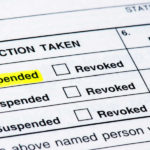Blog
-
Should You Get a Lawyer for an At-Fault Crash?
Getting into a car accident is stressful enough, but when you know or even suspect it was your fault, the worry hits differently. You might…
-
When Can Kids Sit in the Front Seat of a Car in Florida? What Florida Law Says
It’s a big moment when your child asks, “Can I ride up front?” But before you say yes, there’s a lot more to consider than…
-
How At-Fault Car Accident Lawyer Could Save You Money
Getting into a car accident is stressful enough, but when you know or even suspect it was your fault, the worry hits differently. You might…
-
Ringing in Ears After a Car Crash? It Could Be Tinnitus And a Case
The forces in a car accident are enormous, and they can leave damage you don’t always see right away. After the shock fades, many people…
-
How Often Do Car Accident Settlements Exceed Limits & How to Max Yours
When a car crash leaves you with serious injuries and the other driver’s insurance maxes out at $10,000, it’s natural to wonder— “Is that all…
-
What to Do after a Slip and Fall Accident?
Let’s be honest — no one expects to fall in public. One minute you’re shopping, walking into work, or enjoying a resort, and the next,…
-
Florida Seat Belt Laws Explained
Florida seatbelt laws are in place to protect lives. These laws weren’t just written, they’re actively enforced across the state, especially in major metropolitan areas…
-
Florida Statute of Limitations on Injury: What Victims Should Know
If you’ve been hurt in an accident, the last thing on your mind is paperwork or legal deadlines, but waiting too long could cost you…
-
How Long Does a DUI Stay on Your Record in Florida
Getting arrested for DUI can turn your life upside down. You may feel overwhelmed, scared about your future, and unsure how long this one mistake…
-
Whiplash Settlements in Florida: What’s the Real Payout?
You’re still hurting, and now the insurance company is offering you a check that barely covers your pain. After everything you’ve been through, you’re left…
Get Help Now!
Easy. Quick. Confidential.










